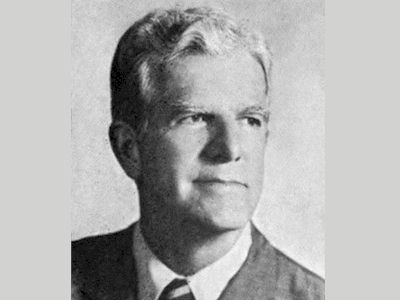Born in Chatham in 1914, Wilbur Clarence Daniel spent his early life in the log cabin of the tobacco farm his parents worked as tenants. At the age of 18, and eager to be out on his own, he joined the Civilian Conservation Corps. Here he observed the welfare system at work and found that the camps the Corps provided to those struggling the most through the Great Depression served only to keep them from starving only temporarily. They did little to improve the chances of true economic recovery for those they served.
Mr. Daniel left the Civilian Conservation Corps and began to pursue his love of baseball. He played semi-professionally until 1936 when he was diagnosed with tuberculosis, which effectively ended his career. His condition required surgery which left one lung unfunctional. His recovery was long, over two years, all of which was spent in a sanitarium. His incapacitation, however, gave him time to think about what he wanted to do next in his life. It also offered him the opportunity to fall in love with his nurse, Ruby McGregor.
Upon his release, Mr. Daniel began working at Dan River Mills carrying bolts of fabric, a job that taxed and perhaps strengthened his compromised health. He also married Ruby.
Eventually Mr. Daniel climbed the ranks at Dan River Mills and became Employment Manager, responsible for 13,000 employees. During this time he began advancing his education, which he felt to be lacking.
When the United States joined the war effort in 1941, Mr. Daniel was eager to sign up. He volunteered and was five times rejected. Undeterred, he went to Roanoke and signed up there, where no one knew about his ailment. He joined the Navy and did well until he was selected for amphibious training, at which point his disability was discovered and he was sent home. His desire to serve was still strong, however, and so he joined the American Legion.
Throughout his service with the American Legion, which included election to the position of State Commander in 1951 and National Commander in 1956, Mr. Daniel maintained his associations with Dan River Mills, and in 1957 was promoted to the position of Assistant to the President. He maintained that post until 1966 when he was named Assistant to the Chairman of the Board.
In the 1950’s, Mr. Daniel entered politics and represented the City of Danville in the Virginia General Assembly. Richard Nixon, then Vice President, was quoted by the local paper as saying that Mr. Daniel was “the kind of young man we need in Congress.” In 1968, the same year that Nixon was elected President of the United States, Mr. Daniel was elected to the House of Representatives. He served ten consecutive terms, seven of which were unopposed. His final term in 1986 was won with more than 80% of the vote.
Mr. Daniel’s desire to serve his country only ended with his death in January of 1988 of a heart attack. It should perhaps also be noted that while he served according to his conscience, those sentiments that guided him were not always in keeping with those that we would wish as a society to be guided by today: community, inclusiveness, equality, and compassion. Mr. Daniel represented the Democratic party in the days of civil unrest and inequality. He opposed integration, supported Massive Resistance, and served on Virginia’s Commission on Constitutional Government, where he dedicated himself to frustrating the Civil Rights movement. History has also recorded his public demand for a congressional investigation of the National Association for the Advancement of Colored People.
Our intention at the Gazette is not to paint the portrait of a hero in illustrating Mr. Daniel’s contribution to history, but simply to elucidate the reasons why his name is so frequently seen. It may be supposed by newcomers and visitors that perhaps he had made some fundamental contribution to the establishing of the city. While his service is worthy of note and his contributions not insignificant, it’s important to understand the context of them as well. Our thanks to Ina Dixon for reminding us that Mr. Daniel’s story, that of a young man who lived the American dream, rising from poverty and obscurity to public recognition, is not necessarily one of untainted glory. When you know better, you do better. And so shall we.

THis was interesting. I’ve wondered who he was, and what his contributions were – we know better, and we are doing better!